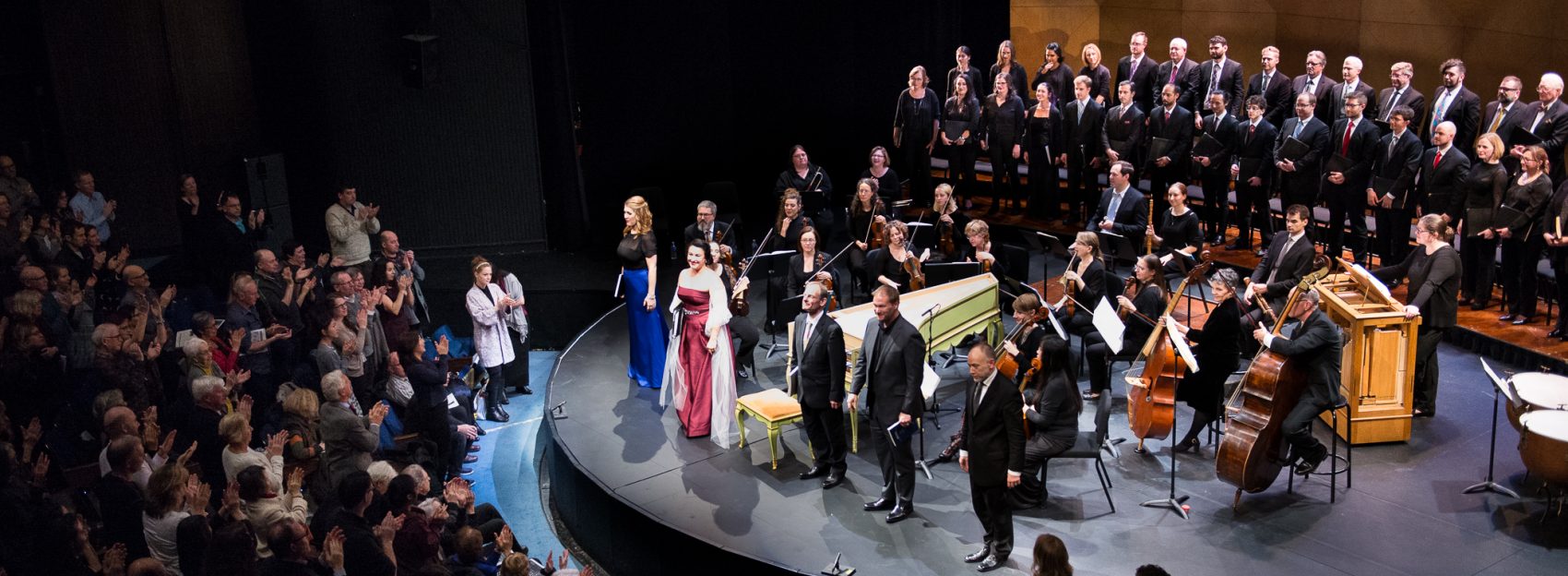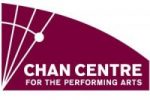Chan Shun Concert Hall at the Chan Centre for the Performing Arts | Map
Joanne Lunn, soprano; Krisztina Szabó, mezzo soprano; Thomas Hobbs, tenor; Peter Harvey, baritone; Ivars Taurins, guest music director; Pacific Baroque Orchestra; Paula Kremer, artistic director of VCS; Vancouver Cantata Singers
After the dramatic success of the PBO’s production of Messiah in 2017, EMV has invited guest director Ivars Taurins, conductor of the Juno-nominated Tafelmusik Chamber Choir to lead an international team of soloists, the PBO and the Vancouver Cantata Singers in a thrilling period instrument performance of this seasonal favourite.
“Taurins’s reading is not merely lean and immaculate, which by now is no surprise to his many admirers, but is also sumptuous, vigorously articulate and profoundly thoughtful.” – The Globe and Mail
This concert is generously supported by J. Evan & Janice Kreider and the Mary and Gordon Christopher Foundation
To view/download this programme, click here.
November 29, 2019 at the Kay Meek Centre in West Vancouver
December 1, 2019 at the ACT Centre in Maple Ridge
Programme
PART THE FIRST
Sinfonia
Comfort ye my people (Tenor Recitative)
Ev’ry valley shall be exalted (Tenor Air)
And the glory of the Lord (Chorus)
Thus saith the Lord (Bass Recitative)
But who may abide the day of his coming (Alto Air)
And he shall purify (Chorus)
Behold, a virgin shall conceive (Alto Recitative)
O thou that tellest good tidings to Zion (Alto Air and Chorus)
For behold, darkness shall cover the earth (Bass Recitative)
The people that walked in darkness (Bass Air)
For unto us a child is born (Chorus)
Pifa
There were shepherds abiding in the fields (Soprano Recitative)
But lo, the angel of the Lord came upon them (Soprano Recitative)
And the angel said unto them (Soprano Recitative)
And suddenly there was with the angel (Soprano Recitative)
Glory to God (Chorus)
Rejoice greatly, O daughter of Zion (Soprano Air)
Then shall the eyes of the blind be opened (Alto Recitative)
He shall feed his flock (Alto and Soprano Duet)
His yoke is easy, and his burthen is light (Chorus)
INTERMISSION
PART THE SECOND
Behold the lamb of God (Chorus)
He was despised (Alto Air)
Surely he hath borne our griefs (Chorus)
And with his stripes we are healed (Chorus)
All we like sheep have gone astray (Chorus)
All they that see him laugh him to scorn (Tenor Recitative)
He trusted in God (Chorus)
Thy rebuke hath broken his heart (Soprano Recitative)
Behold, and see if there be any sorrow (Soprano Air)
He was cut off out of the land of the living (Tenor Recitative)
But thou didst not leave his soul in hell (Tenor Air)
Lift up your heads, O ye gates (Chorus)
Unto which of the angels said He at any time (Tenor Recitative)
Let all the angels of God worship Him (Chorus)
Thou art gone up on high (Alto Air)
The Lord gave the word (Chorus)
How beautiful are the feet of them (Soprano Air)
Their sound is gone out (Chorus)
Why do the nations (Bass Air)
Let us break their bonds asunder (Chorus)
He that dwelleth in heaven (Tenor Recitative)
Thou shalt break them (Tenor Air)
Hallelujah (Chorus)
There will be a very brief interval between Parts II and III.
Please remain in the hall.
PART THE THIRD
I know that my redeemer liveth (Soprano Air)
Since by man came death (Chorus)
Behold, I tell you a mystery (Bass Recitative)
The trumpet shall sound (Bass Air)
Then shall be brought to pass (Alto Recitative)
O death, where is thy sting? (Alto and Tenor Duet)
But thanks be to God (Chorus)
If God be for us (Soprano Air)
Worthy is the Lamb that was slain (Chorus)
Amen (Chorus)
Programme Notes
Handel says he will do nothing next Winter, but I hope to persuade him to set another Scripture Collection I have made for him, & perform it for his own Benefit in Passion Week. I hope he will lay out his whole Genius & Skill upon it, that the Composition may excel at his former Compositions, as the Subject excels every other Subject. The Subject is Messiah.
– Charles Jennens, from a letter to his friend Edward Holdsworth, dated July 10, 1741
When Charles Jennens presented his libretto for Messiah to his friend George Frideric Handel in 1741, it was in the hopes of convincing the composer that he should devote his efforts to writing oratorios rather than operas. This was not just because the two men had previously collaborated on the successful oratorio Saul (1738), but because Handel, the German-born composer who had enjoyed years of successes in delighting London audiences with his Italian operas, was succumbing to a tide of tastes that had finally turned against him. A few years before, both his opera company and his health had collapsed. While his health improved relatively quickly, the reception of his operas did not. His most recent operatic efforts had been so unsuccessful that he was seriously considering abandoning England altogether. The year 1741 proved to be pivotal for Handel. In February he gave his last performance of an Italian opera (Diadamia), and by September 14, he had quickly composed his sixth oratorio and most enduring masterpiece: Messiah.
It is staggering to contemplate that Handel’s composition of Messiah took only twenty-four days. This may indeed be evidence of an unusually profound inspiration on Handel’s part, but it is worth noting that this timeframe was fairly typical for the composer. Most of his operas and oratorios were written in similarly short, intense bursts, often during his limited “down time” between theatrical seasons. In the six weeks immediately after he composed Messiah, for example, he wrote Samson, another large-scale oratorio.
By November of 1741, Handel had arrived in Dublin in response to an invitation to give a series of performances there, and on April 13, 1742, Messiah was ready for its first public performance. It was so evident that this new work was going to be a huge draw that promoters encouraged ladies to refrain from wearing hoop-framed skirts and gentlemen were requested to come without their swords. Whether or not it was because their fashion accessories were left at home, the city’s brand new Great Music Hall in Fishamble Street, built to hold 600, packed in 700 audience members for the premiere of Handel’s new oratorio.
One year later, when Handel introduced London audiences to Messiah, the work was not universally praised. Many objected to the notion that a biblical text was being sullied by being performed in that hotbed of sinful subject matter and overwrought drama: the theatre. For others, the piece was not dramatic enough, since it had so many choruses and practically none of the characters and dialogue more common to opera. It was only when Handel began annual charity performances of the work at the Foundling Hospital in 1750 that its popularity began to take hold. By the time Handel died in 1759, Messiah had secured a place of honor in the Western musical canon that it still holds today.
Perhaps this enduring success is due not only to Handel’s musical genius, but also to Jennens’ unique libretto. Like most oratorios, the libretto utilizes sacred texts, in this case from both the Old and New Testament. Unlike most oratorios, there are hardly any instances of narrative (the angel’s proclamation of the birth of a savior in Part I is the only true exception) and no defined speaking characters (even Christ’s name is hardly mentioned until Part III). Instead of plot-driven action, Jennens presents a succession of dramatic scenes, scriptural passages and metaphorical references that allow the listener the opportunity to reflect upon the story rather than merely react to it.
Like an opera, the work is divided into three parts, or acts, each comprised of several scenes. Part I offers comforting prophecies of salvation, fiery proclamations of approaching judgment, and a jubilant accounting of Christ’s birth. Part II is the emotional core of the work, the longest in duration and scope, and certainly the most dramatic. A depiction of Christ’s passion, death, resurrection, and ascension into heaven would be substance enough, but this act goes even further, exploring the spread of the gospel and God’s ultimate victory through the triumph of Christ’s reign. Part III is one of is one of affirmation and thanksgiving, and invites the listener to contemplate eternal life, the conquest of sin, and the final, joyous acclamation of the Messiah.
Handel’s genius and skill reassert themselves in the musical linking of these scenes, and through his setting of the text. Often, these links are accomplished through the repetition of musical figures. For example, the abrupt, angular, dotted rhythms played by the instrumentalists during the scourging of Jesus make their first appearance in Part II during the aria “He was despised,” but they continue through the chorus that immediately follows (“Surely, he hath borne our griefs”) and appear yet again when the passion narrative returns with the recitative, “All they that see Him, laugh Him to scorn.” Sometimes, the unity of ideas is underscored by similarities in tempo and affect, as in the end of Part II, when violent images of another sort are given similar treatment (“Why do the nations so furiously rage together”, “Thou shalt break them with a rod of iron”). In other parts of the piece, Handel favors not unity but abrupt change. He adeptly alters key, tempo, and meter to serve similarly sudden changes in the text, as in the dramatic shifts between awed reverence and the refiner’s fire of “But who may abide the day of his coming” in Part I.
Perhaps the feature of Messiah that has contributed the most to its longevity is how Handel distributes the storytelling duties almost equally between soloists, chorus and orchestra. In effect, everyone on the stage has a starring role. And the music of all three of these forces is constantly, fluidly shifting between a lyrical style that provides memorable melodies, and a declamatory style that expertly mimics speech patterns with rhythm and dynamics.
Although Messiah maintains its reputation as a monumental work—its grand form carefully sustained as it is performed again and again in the centuries since its composition—from the very beginning, it has been a work in flux. As in many of his other compositions, Handel made numerous changes to the piece for nearly all of its performances. Some of these changes were to accommodate the ranges or abilities of different singers and others seem to represent Handel’s ceaseless interest in fine-tuning the impact or accessibility of the piece as a whole. In the end, the fact that there is no definitive version of Messiah might be its most attractive quality. Perhaps more than with any other piece of its scale, audiences and performers alike are welcomed back to Messiah and invited to rediscover its music, its message and its methods of performance, making Messiah a musical experience that somehow manages to be as comforting and familiar as it is striking and wholly new.
-Aaron Cain
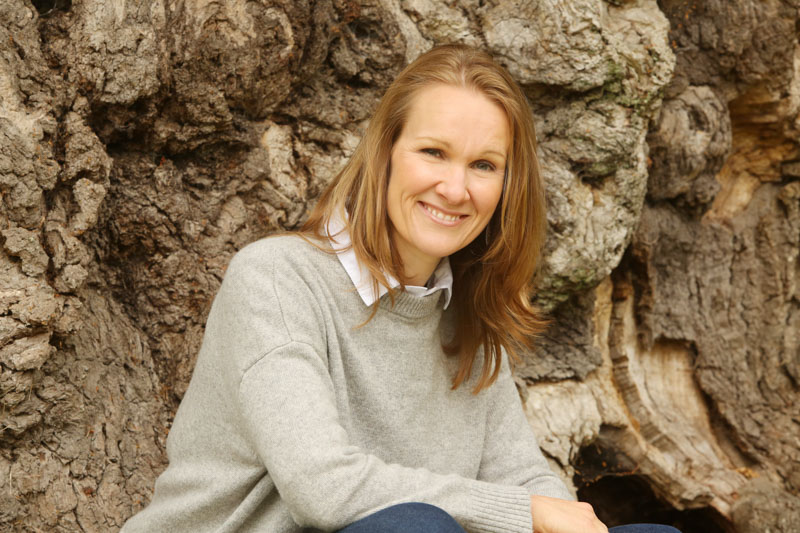
Joanne Lunn, soprano
Joanne Lunn studied at the Royal College of Music in London, where she was awarded the prestigious Tagore Gold Medal.
Joanne’s operatic engagements have included her ENO debut in Steven Pimlott’s production of Monteverdi’s L’Incoronazione di Poppea conducted by Harry Christophers, the role of Helena in Britten’s A Midsummer Night’s Dream in Venice conducted by Sir John Eliot Gardiner and directed by David Pountney, a tour of Purcell’s Dido and Aeneas in Spain and semi staged productions of Monteverdi’s Orfeo in Paris and for the Beijing International Music Festival (directed by Sir Jonathan Miller).
In concert, Joanne has performed in Bach’s St Matthew Passion with the Orchestra of the Age of Enlightenment conducted by Sir Roger Norrington, with the Rotterdam Philharmonic Orchestra and with the LSO at the Barbican Hall. She has appeared as soloist in Messiah in the Halle Handel Festival, at St. Mark’s Venice, and with Bach Collegium Japan (Suzuki) and with the Mozarteum Orchester in Salzburg, as well as in Handel’s L’Allegro and Haydn’s Heiligmesse, Harmoniemesse and Paukenmesse with the Monteverdi Choir and Sir John Eliot Gardiner. Her busy concert schedule has also featured Bach’s Magnificat at the BBC Proms with the Academy of Ancient Music, and with Bach Collegium Japan, Rutter’s Requiem with the Royal Liverpool Philharmonic Orchestra conducted by the composer, Haydn’s The Seasons with the Huddersfield Choral Society, Fauré’s Requiem in Toulouse directed by Marc Minkowski, Bach Mass in B Minor with Bach Collegium Japan conducted by Masaaki Suzuki, with the Academy of Ancient Music in Alzenau and with Les Musiciens du Louvre and Minkowski, for the Akademie der alte Musik, and at the Sage, Gateshead. She has appeared in Mozart’s Mass in C Minor for the City of London Sinfonia and Melbourne Symphony Orchestra, Mozart Requiem in Moscow and at the Mariinsky Concert Hall, St Petersburg, Purcell’s The Blessed Virgin’s Expostulation and The Fairy Queen in Salzburg, Easter Oratorio with the BBC National Orchestra and Chorus of Wales under Nicholas Kraemer, Nelson Mass for the Ulster Orchestra, Rutter Mass of the Children at St Paul’s Cathedral and at Symphony Hall, Birmingham, Harmoniemesse for Scottish Chamber Orchestra, L’Allegro, Il Penseroso ed il Moderato at the Handel Festival in Göttingen, The Creation at Cadogan Hall and Zelenka’s Missa Votiva for Musik Podium Stuttgart, Mozart Exsultate Jubilate, Mahler 4th Symphony at the Tchaikovsky Concert Hall, Moscow. Further concert performances have ranged from Saul with Cappella Amsterdam and with the Estonian Philharmonic Chamber Choir, to the first performances of J.C Bach’s Mailänder Vesperpsalmen with Concerto Köln at the Frauenkirche, Dresden, Bach Cantatas with Le Concert Lorrain, Belinda Dido & Aeneas in Warsaw, Israel in Egypt with Düsseldorfer Symphoniker, St John Passion with Les Musiciens du Louvre (Minkowski) and Graun’s Der Tod Jesu with Collegium Vocale. She also appeared at the Niedersächsische Musiktage with Bach Collegium Japan in programmes of Bach Cantatas, and also in Christmas Oratorio at the Tonhalle, Zürich (Suzuki), concerts with Bachakademie Stuttgart and Tafelmusik (Toronto), a tour of L’Allegro, Il Penseroso ed il Moderato with Rudolf Lutz, Bach Cantatas with Ensemble Pygmalion (Raphaël Pichon), a US tour with Bach Collegium Japan, Messiah with Tafelmusik (Toronto), Israel in Egypt and St John Passion with Concerto Copenhagen.
Joanne features as a soloist on many CD recordings. Her discography includes Vivaldi’s Laudate Pueri with The King’s Consort (Hyperion), Haydn Masses with Sir John Eliot Gardiner and the Monteverdi Choir (Philips), John Rutter’s Mass of the Children with the City of London Sinfonia conducted by the composer (Collegium), Sir John Eliot Gardiner’s Bach Cantatas cycle recorded during the Bach Pilgrimage in 2000 (Deutsche Grammophon/Soli Deo Gloria), Bach’s Easter Oratorio with Frieder Bernius and the Stuttgart Kammerchor (Carus), Bach Motets with The Hilliard Ensemble (ECM), Messiah with the RPO and John Rutter, Bach Wedding Cantata BWV 202 with Bach Collegium Japan (BIS), and Bach St John Passion with the Dunedin Consort (Linn), which was nominated for a Gramophone award.
Recent engagements include Dafne Apollo e Dafne with Concerto Copenhagen at the Copenhagen Opera Festival, Monteverdi Vespers with the Dunedin Consort, Bach Secular Cantatas and Mass in B Minor with Bach Collegium Japan, Messiah with the Hallé Orchestra and also with Bournemouth Symphony and Christmas Oratorio with Le Concert Lorrain. Engagements in 2017/2018 include Chandos Anthems with the Dunedin Consort, The Creation with Leeds Festival Chorus, a European tour of Brockes Passion with Ensemble Pygmalion, Mozart Mass in C Minor with Tafelmusik in Toronto, Bach Cantatas at the Wiener Konzerthaus, appearances in concert with Bachfest Leipzig, recitals in Florence, Schloss Elmau and at the Musikfest Eichstätt, Creation with Warsaw Philharmonic, Messiah with Tafelmusik in Toronto, Bach Cantatas with Le Concert Lorrain and St John Passion with Holland Baroque Society.
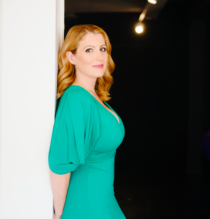
Krisztina Szabó, mezzo soprano
Hungarian-Canadian mezzo-soprano Krisztina Szabó is highly sought after in North America and Europe as an artist of supreme musicianship and stagecraft. She is known for her promotion and performance of contemporary Canadian works. Among her many laudatory reviews, Opera Canada declared her to be an “exceptional talent” after her performance of the title role of Dido in Purcell’s Dido and Aeneas. After a performance with Tapestry Opera, the music blog, Schmopera wrote that “her instrument is one-of-a-kind and she has cemented herself as a darling of Canadian experimental music and opera…her sensibility and sensitivity to the material is truly inspiring”. In her hometown of Toronto, she has been nominated twice for a Dora Award for Outstanding Female Performance. Krisztina has recently been appointed Assistant Professor of Voice and Opera at the University of British Columbia School of Music.
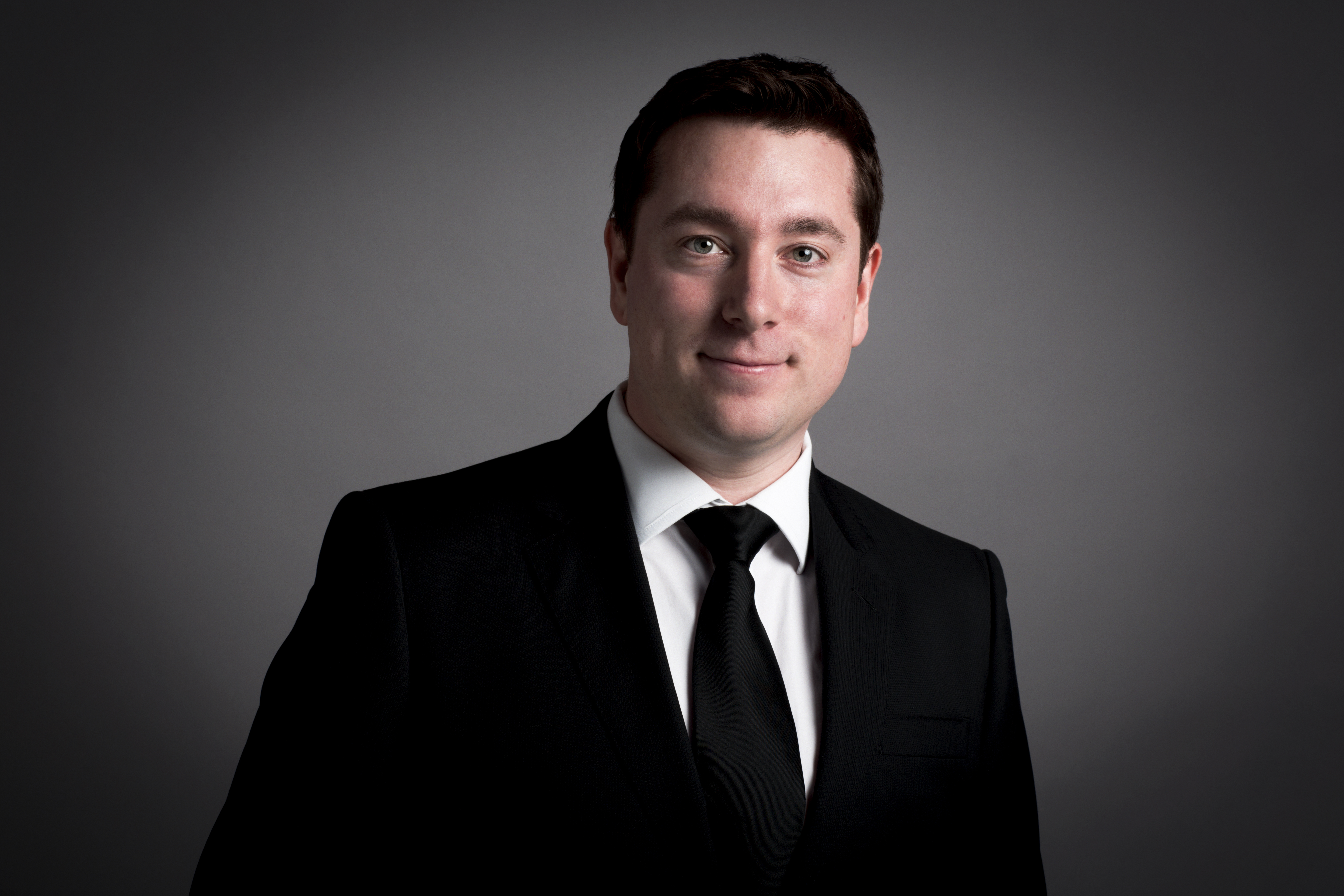
Thomas Hobbs, tenor
Thomas Hobbs is in demand with many leading baroque and early music ensembles, appearing throughout Europe and the US as a soloist in key works from the 16th, 17th and 18th centuries.
Current and future engagements include Haydn’s Creation with Israel Camerata in Jerusalem and with the London Philharmonic Orchestra, tours with Collegium Vocale Gent, and Bach cantatas, Mass in B Minor, and Easter Oratorio with the Nederlandse Bachvereniging. Hobbs will also sing Bach with the Musikpodium Stuttgart, and Monteverdi Vespers with the Academy of Ancient Music.
Recent concert performances include Damon in Acis and Galatea with Dunedin Consort, Bach cantatas with the Nederlandse Bachverenigning and Ensemble Pygmalion, Bach’s Christmas Oratorio with the Tonkünstler-Orchester Niederösterreich, Tonhalle Orchester Zürich and Le Concert Lorrain. Hobbs has also sung Evangelist in the Bach St Matthew Passion and St John Passion with the Choir of King’s College, Cambridge.
Hobbs’s operatic roles include a critically acclaimed Telemachus in The Return of Ulysses in a new production for English National Opera conducted by Jonathan Cohen, Apollo and Shepherd in Monteverdi’s Orfeo in semi-staged performances with Richard Egarr and the Academy of Ancient Music, the title role in Albert Herring and Ferrando in Così fan tutte. Also a keen recitalist, Hobbs’ recent highlights include performing Brett Dean’s Winter Songs at the Cheltenham Festival, Vaughan Williams’s On Wenlock Edge with the Edinburgh Quartet, Schubert’s Die Schöne Müllerin, Schumann’s Liederkreis, Op.39 and a recital of Mozart songs at London’s Kings Place.
Born in Exeter, Thomas Hobbs studied at the Royal College of Music under the tutelage of Neil Mackie, where he was awarded the RCM Peter Pears and Mason scholarships, and at the Royal Academy of Music under Ryland Davies, where he held a Kohn Bach Scholarship in addition to a full entrance scholarship. He was also a member of the prestigious Académie at the Aix-en-Provence Festival, where he performed in concert with Louis Langrée and the Camerata Salzburg.
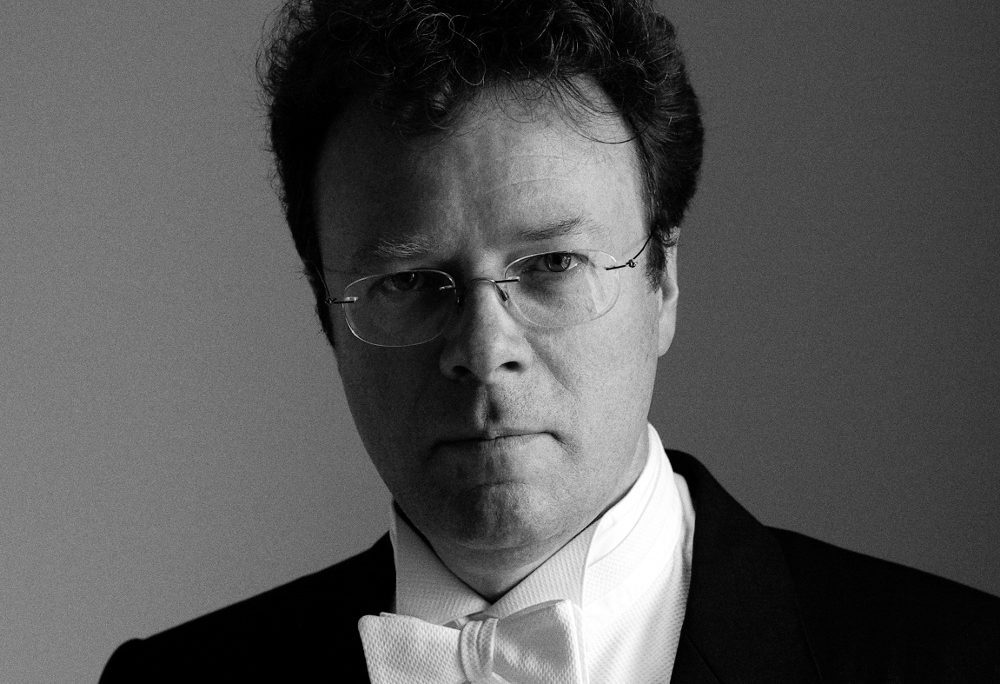
Peter Harvey, baritone
Initially a student of French and German at Magdalen College, Oxford, Peter Harvey only later changed course to music, and a love of languages has always remained at the heart of his singing. On leaving university he went on to the Guildhall School of Music and Drama, during which time he won prizes in numerous competitions, including the Walther Grüner International Lieder Competition, the English Song Award, and the Peter Pears Award.
Peter has made close to 150 recordings in repertoire spanning eight centuries, with an emphasis on the High Baroque. Along with works by Handel and Purcell he has recorded all the major vocal works of J.S. Bach and many of the cantatas with conductors including Sir John Eliot Gardiner, Philippe Herreweghe and Paul McCreesh. A fluent French speaker, Peter has recorded a great many sacred works of the French Baroque and performs regularly with Michel Corboz. Of his two recordings of the Fauré Requiem with Michel Corboz, the latest version won the “Choc de l’année” in Le Monde de la Musique. The Gabrieli Consort’s recording of Haydn’s Creation, for Deutsche Grammophon, on which Peter sings “Adam”, won the ‘Grammy Award’ for the best choral recording of 2008. His Winterreise with Gary Cooper on Linn garnered outstanding reviews in the national and international press.
Recent and upcoming highlights include his debut at Royal Danish Opera as well as performances with Concerto Copenhagen, Monteverdi Choir and Orchestra, Orchestra of the Age of Enlightenment, Akademie für Alte Musik Berlin, Gaechinger Cantorey, Freiburger Barockorchester, Mahler Chamber Orchestra, Tafelmusik Toronto, Ensemble Pygmalion, Gulbenkian Orchestra, Orquesta Sinfonica de Bilbao, Oslo Philharmonic , Bavarian Radio Symphony Orchestra, Rotterdam Philharmonic, Nederlands Kamerorkest and Orchestre symphonique de Montréal.
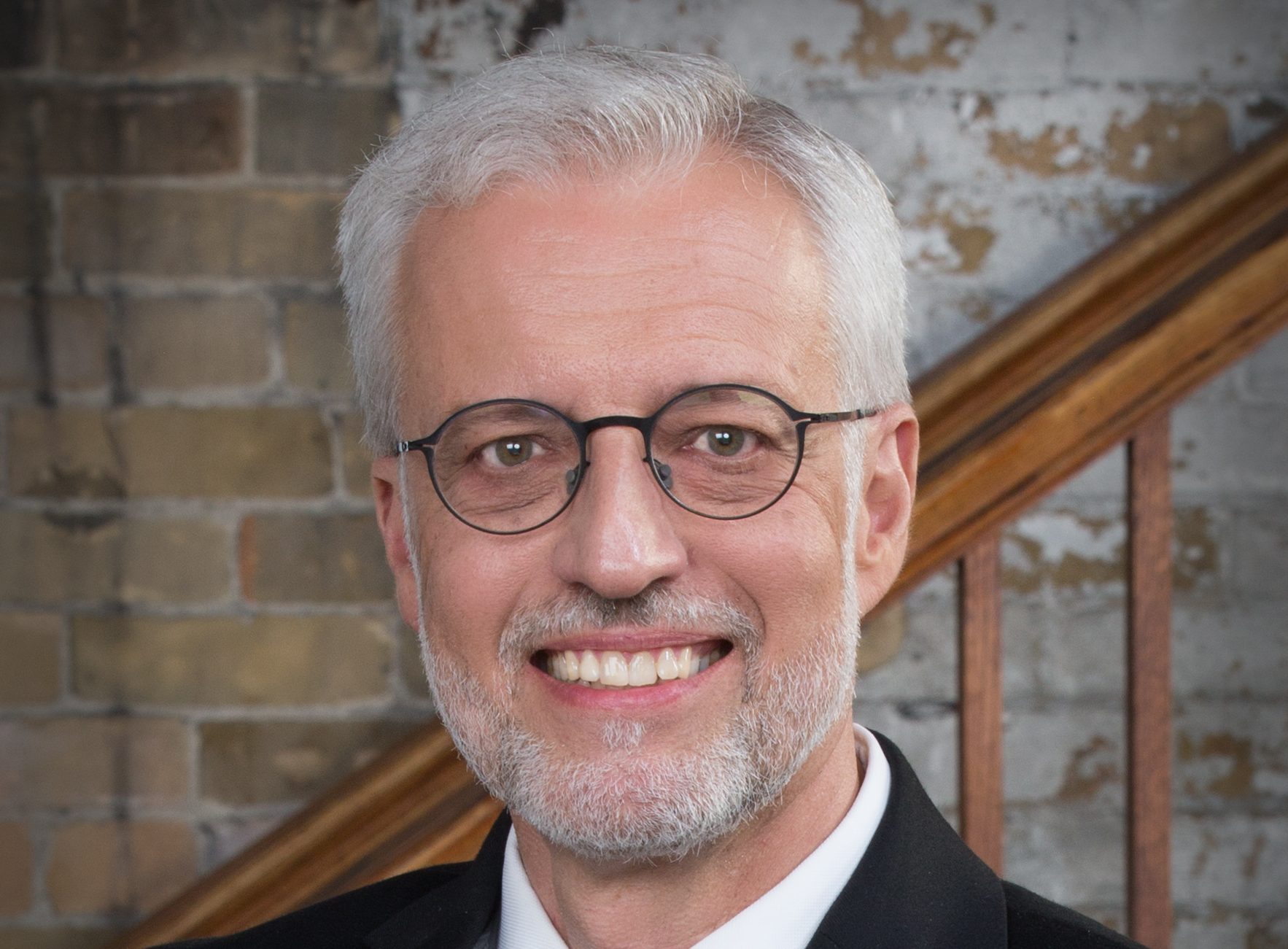
Ivars Taurins, guest music director
Equally at home conducting symphonic and choral repertoire, Ivars Taurins is the founding director of the Tafelmusik Chamber Choir. He was also founding member and violist of the Tafelmusik Orchestra for its first 23 years. Under his direction, the choir has been praised for its clarity, nuance, and brilliance. Ivars Taurins appears regularly with the Calgary Philharmonic Orchestra, with whom he was Principal Baroque Conductor from 2001–2011. He also appears as guest director with orchestras and choirs across Canada, including the Edmonton, Victoria, Winnipeg, Regina, and Kitchener-Waterloo Symphonies, Hamilton Philharmonic, Orchestra London, Symphony Nova Scotia, Manitoba Chamber Orchestra, Thirteen Strings (Ottawa), Vancouver Chamber Choir, Toronto Mendelssohn Choir, Pro Coro Canada, Winnipeg Singers, Halifax Camerata Singers, and Elora Festival Orchestra & Singers, and at the Festival International de Musique Baroque de Lamèque. In September 2011, Ivars Taurins was guest choir director for the Orchestre symphonique de Montréal, preparing a combined chorus of Tafelmusik Chamber Choir and members of the OSM Chorus for performances and a recording (Analekta) of Beethoven's Ninth Symphony, directed by Kent Nagano at the gala opening of the new Maison symphonique in Montreal. In 2017, he directed the Cuban choir Schola Cantorum Coralina in Havana, in a special concert celebrating the 85th anniversary of Glenn Gould’s birth and Canada’s 150th birthday.A passionate lecturer and teacher, Ivars Taurins teaches orchestral conducting at the University of Toronto. He is also on the faculty of the Glenn Gould School, where in 2016 he directed a fully staged production of Handel’s Alcina, collaborating with veteran stage director Leon Major. Ivars has been a guest teacher/conductor at the Université de Sherbrooke, Queen’s University (Kingston), Western University (London), and at the Universities of Alberta and Windsor. He was director of the 2012 National Youth Choir, the 2000 and 2009 Ontario Youth Choirs, the 2003 Nova Scotia Youth Choir, the 2004 Alberta University & College Choir, and guest director of the London, Calgary, and Nova Scotia Youth Orchestras. Ivars Taurins is director of the vocal/choral programme at the annual Tafelmusik Baroque Summer Institute. Ivars was nominated for a 2011 Gemini Award for his performance as George Frideric Handel in Sing-Along Messiah, filmed by 90th Parallel Productions for Bravo! Television and released on DVD by Tafelmusik Media
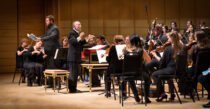
Pacific Baroque Orchestra
The ‘house band’ of Early Music Vancouver, The Pacific Baroque Orchestra (PBO) is recognized as one of Canada’s most exciting and innovative ensembles performing “early music for modern ears.” Formed in 1990, the orchestra quickly established itself as a force in Vancouver’s burgeoning music scene with the ongoing support of Early Music Vancouver. In 2009, PBO welcomed Alexander Weimann as Director. His imaginative programming, creativity and engaging musicianship have carved out a unique and vital place in the cultural landscape of Vancouver.
PBO regularly joins forces with internationally-celebrated Canadian guest artists, providing performance opportunities for Canadian musicians while exposing West Coast audiences to a spectacular variety of talent. The Orchestra has also toured throughout BC, the northern United States, and across Canada. Their 2019 East Coast Canadian tour with Canadian soprano Karina Gauvin culminated in a critically acclaimed album, Nuit Blanches, released by Atma Classique.
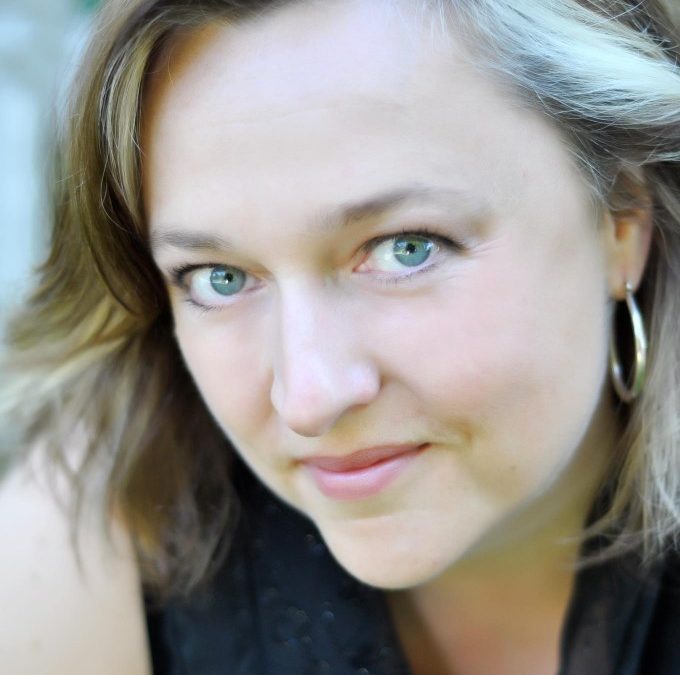
Paula Kremer, artistic director of VCS
Born in Vancouver and educated at the University of British Columbia and the Vancouver Academy of Music, Paula Kremer has studied choral conducting at Eton College, Westminster Choir College, the Eastman School of Music and the University of Michigan. An accomplished vocalist and pianist, Paula studied voice with Phyllis Mailing, Bruce Pullan, Marisa Gaetanne and Laura Pudwell and piano with Margot Ehling. As permanent faculty member of the School of Music at Vancouver Community College, Paula teaches choral techniques, voice and solfege. She was previously the Director of Vancouver Bach Choir ensembles for young adults, the Vancouver Bach Youth Choir and Sarabande Chamber Choir. Paula joined the alto section of our choir in 1994 and has been the Artistic Director of the Vancouver Cantata Singers since 2013.
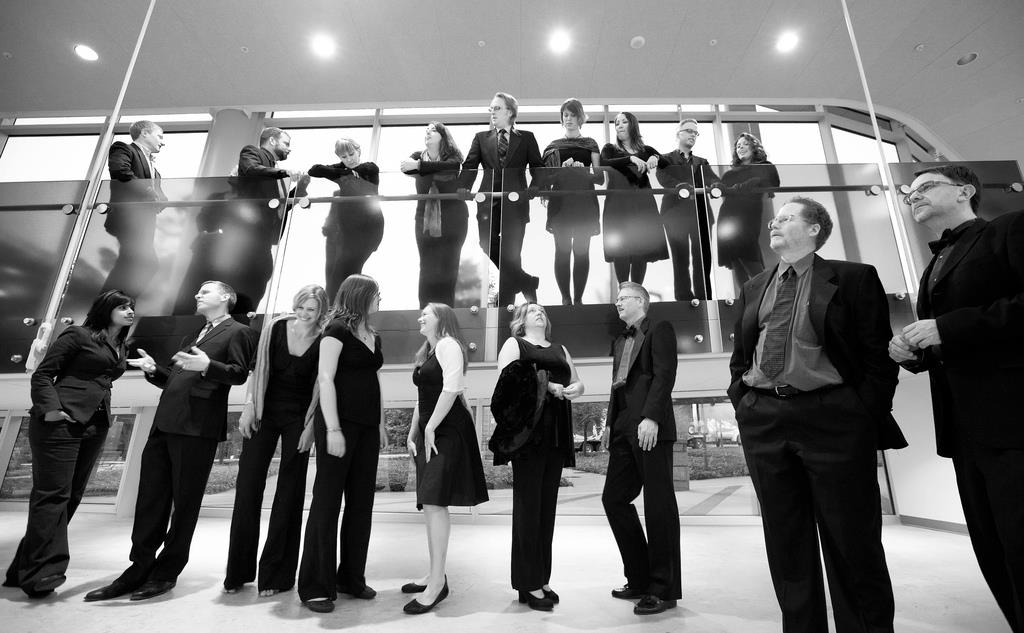
Vancouver Cantata Singers
The Vancouver Cantata Singers is one of Canada’s preeminent, award-winning choral ensembles. Known for its exceptional artistry, technical virtuosity and exquisite tonal blend, the choir maintains the highest standards of performance in repertoire encompassing 500 years.
On Canada Day, 2019, the Vancouver Cantata Singers was awarded the prestigious Canada Council for the Arts Healey Willan Prize, for the fourth time – more than any other ensemble in the history of the award. The VCS was also awarded Best Performance of a Canadian Work and First Place in the Adult Mixed-Voice Category at the National Competition for Canadian Amateur Choirs.
A mainstay on the Canadian music scene for over 60 years, the VCS has maintained the highest levels of artistry in choral singing while continuing to reinvent and redefine itself creating innovative and extremely successful collaborations with acclaimed regional as well as international artists and ensembles.

